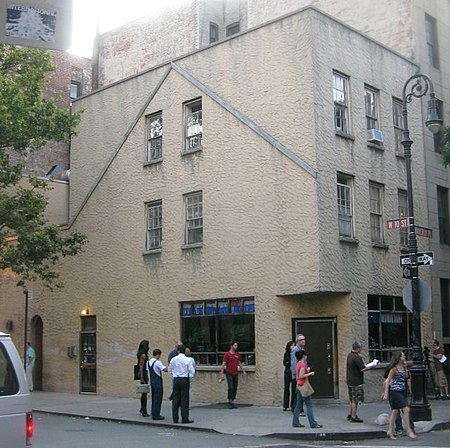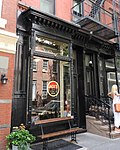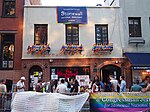Julius (restaurant)

Julius' is a tavern in Manhattan's Greenwich Village neighborhood in New York City, located at 159 West 10th Street at Waverly Place. It is often called the oldest continuously operating gay bar in New York City. Its management, however, was actively unwilling to operate as such, and harassed gay customers until 1966. The April 1966 "Sip-In" at Julius, located a block northeast of the Stonewall Inn, established the right of gay people to be served in licensed premises in New York. This action helped clear the way for gay premises with state liquor licenses. Newspaper articles on the wall indicate it was the favorite bar of Tennessee Williams, Truman Capote and Rudolf Nureyev. In 2016, it was listed on the National Register of Historic Places.
Excerpt from the Wikipedia article Julius (restaurant) (License: CC BY-SA 3.0, Authors, Images).Julius (restaurant)
Waverly Place, New York Manhattan
Geographical coordinates (GPS) Address Nearby Places Show on map
Geographical coordinates (GPS)
| Latitude | Longitude |
|---|---|
| N 40.734444444444 ° | E -74.001388888889 ° |
Address
Waverly Place 184
10014 New York, Manhattan
New York, United States
Open on Google Maps






